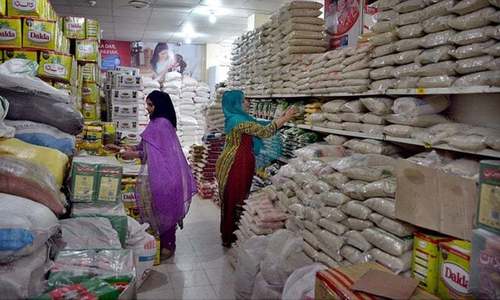ISLAMABAD: The country’s food import bill widened by over 50 per cent to $1.473 billion in the first two months of the current fiscal year (2MFY22) from $0.980bn over the corresponding months of last year to bridge the gap in food production, data released by the Pakistan Bureau of Statistics (PBS) showed on Friday.
The continuing food import bill is triggering trade deficit that may cause uneasiness on the external side for the government.
It is worth mentioning that Pakistan spent over $8bn on import of edible items in the last financial year.
Sugar, wheat, palm oil and pulses being procured from abroad to meet domestic demand
The food import bill will go up further in the next few months because the government has decided to import 0.6 million tonnes of sugar and 4m tonnes of wheat to build strategic reserves.
The total import bill inched up by 74.09pc to $12.16bn in July-Aug FY22 as against $6.98bn over the corresponding months of last year.
Sugar, wheat, palm oil and pulses are the main items procured from abroad to meet demand at home.
The import bill of all food items posted a growth in value and quantity in the first two months this year, indicating a shortage in domestic production. Within the food group import, the major contribution came from wheat, sugar, edible oil, spices, tea and pulses. Edible oil import witnessed a substantial increase in quantity, value and per value terms.
Import of palm oil grew by 63.59pc in value in July-Aug FY22 to $577.022m from $352.729m over the corresponding months of last year. In quantity, 12.69pc negative growth was recorded in import of palm oil during the same period. The palm oil import bill increased due to rise in international price of this commodity.
As a result, the prices of vegetable ghee and cooking oil went up during the last few months for domestic users. Finance Minister Shaukat Tarin has asked the Federal Board of Revenue to look into the issue of tax incidence in order to give relief to consumers.
The import of soya bean oil dipped by 42.15pc in value and 67.75pc in quantity during 2MFY22 from a year ago.
Pakistan imported 57,000 tonnes of wheat in first two months of the current fiscal year against 39,348 tonnes imported last year, showing an increase of 44.86pc. Last year in first nine months, the government imported 3.612m tonnes of wheat worth $983.326m as against no imports in the previous year.
Since April 2021 until July 2021, wheat has not been imported. The Economic Coordination Committee of the cabinet has decided to import 4m tonnes of wheat for keeping buffer stock.
The import of sugar stood at 99,943 tonnes in July-Aug FY22 as against 1,548 tonnes last year, showing an increase of 6,356pc. Despite imports the sugar price is steadily on rise, which in some markets are sold at retail level at Rs115 to Rs120 per kg.
Import of tea and spices grew by 17.24pc and 37.48pc, respectively, in July-Aug FY22. The growth is mainly due to a drop in import of these products under transit trade and checks on smuggling in border areas.
The import bill of pulses, dried fruits, milk and other food products witnessed a massive growth in July.
The machinery import bill increased by 40.96pc to $1.866bn in July-Aug FY22 against $1.324bn over the same month last year. Import of power generating machinery went up by 28.18pc in the month under review mainly due to China-Pakistan Economic Corridor-related projects.
The mobile phones import dipped by 6.66pc in July-Aug FY22 from the same months a year ago. The decline was noted for the first time in import of mobile phones as well as its machinery following the introduction of Device Identification Registration and Blocking System, a system designed to identify non-compliant devices operating on local mobile networks.
The import of transport sector posted a growth of 154.4pc to $667.789m in the first two months this year against $262.474m over last year. It was mainly led by massive imports of road motor vehicles (build unit, CKD/SKD).
Published in Dawn, September 18th, 2021















































